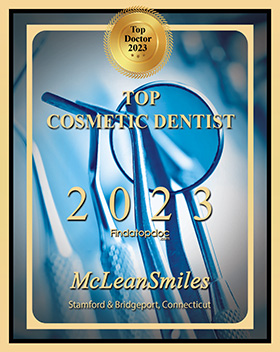The arrival of wisdom teeth, or third molars, can be a significant milestone in one's dental journey. These teeth usually emerge through the gums at the back of the mouth between ages 17 and 25. Given that this period coincides with the transition from adolescence to adulthood, a stage often referred to as "the Age of Wisdom," these teeth are commonly known as "wisdom teeth."
While some individuals may experience no issues with their wisdom teeth, others may encounter problems that require extraction. For many young adults, pain from emerging or impacted wisdom teeth is the primary reason they seek urgent dental care.
Due to limited space in the back of the mouth, wisdom teeth are more prone to problems. While our prehistoric ancestors may have had large enough jaws to accommodate these latecomers, human jaws have become smaller over time. Researchers believe this evolutionary change is due to our softer diets and larger brains.
An impacted wisdom tooth occurs when it remains submerged under gum tissue or bone and cannot erupt into position. Depending on the type and amount of overlying tissue, impactions are classified in different ways. Soft tissue impactions occur when a wisdom tooth remains covered by gum tissue. If a wisdom tooth is partially or fully obstructed by bone, it's known as a bony impaction.
In addition to the frequency of impactions and poor alignment, keeping third molars clean and free from cavities and gum disease can be challenging. As positioned far back in the mouth, these teeth are particularly susceptible to bacterial accumulation, dental disease, and infection. Our office may recommend extracting third molars to help reduce the risk of these oral health issues, preserving the overall well-being of your gums and neighboring teeth. By eliminating the need for navigating far-back, hard-to-reach areas, maintaining a better oral hygiene routine becomes simpler and healthier.
In rare cases, wisdom teeth may contribute to the formation of cysts or tumors around the impacted tooth. These problems can cause extensive damage to the jawbone and surrounding teeth.
At our office, we closely monitor the development, location, and health of unerupted and erupted wisdom teeth during each dental checkup visit. For teens and adults of all ages, we often recommend the extraction of potentially problematic wisdom teeth before a painful or complex emergency arises. We also provide prompt treatment and recommend extractions as indicated if symptoms and problems develop.
Discovering the Advantages of Wisdom Teeth Removal
The arrival of wisdom teeth, or third molars, can be a significant milestone in one's dental journey. These teeth usually emerge through the gums at the back of the mouth between ages 17 and 25. Given that this period coincides with the transition from adolescence to adulthood, a stage often referred to as "the Age of Wisdom," these teeth are commonly known as "wisdom teeth."
While some individuals may experience no issues with their wisdom teeth, others may encounter problems that require extraction. For many young adults, pain from emerging or impacted wisdom teeth is the primary reason they seek urgent dental care.
Due to limited space in the back of the mouth, wisdom teeth are more prone to problems. While our prehistoric ancestors may have had large enough jaws to accommodate these latecomers, human jaws have become smaller over time. Researchers believe this evolutionary change is due to our softer diets and larger brains.
An impacted wisdom tooth occurs when it remains submerged under gum tissue or bone and cannot erupt into position. Depending on the type and amount of overlying tissue, impactions are classified in different ways. Soft tissue impactions occur when a wisdom tooth remains covered by gum tissue. If a wisdom tooth is partially or fully obstructed by bone, it's known as a bony impaction.
In addition to the frequency of impactions and poor alignment, keeping third molars clean and free from cavities and gum disease can be challenging. As positioned far back in the mouth, these teeth are particularly susceptible to bacterial accumulation, dental disease, and infection. Our office may recommend extracting third molars to help reduce the risk of these oral health issues, preserving the overall well-being of your gums and neighboring teeth. By eliminating the need for navigating far-back, hard-to-reach areas, maintaining a better oral hygiene routine becomes simpler and healthier.
In rare cases, wisdom teeth may contribute to the formation of cysts or tumors around the impacted tooth. These problems can cause extensive damage to the jawbone and surrounding teeth.
At our office, we closely monitor the development, location, and health of unerupted and erupted wisdom teeth during each dental checkup visit. For teens and adults of all ages, we often recommend the extraction of potentially problematic wisdom teeth before a painful or complex emergency arises. We also provide prompt treatment and recommend extractions as indicated if symptoms and problems develop.
Don't hesitate to reach out to us with any questions you may have about your dental health, including concerns related to your wisdom teeth. Our dedicated staff at the office of McleanSmiles is always here to help guide you on your journey toward optimal oral wellness.
Our goal is to help every patient experience the benefits of good oral health and a beautiful smile. We value the trust you have placed in our office and strive to provide solutions that meet your dental needs and expectations of care.
